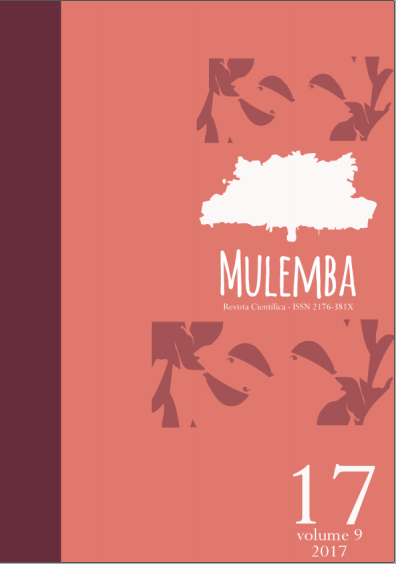“Epa, my Future is Becoming more and more Uncertain”: Perspectives of the Future Through the Soundtrack and The Child's Discourse in the Postcolonial Representations of the Movie the Blue Eyes of Yonta (1992), of Flora Gomes
DOI:
https://doi.org/10.35520/mulemba.2017.v9n17a14614Keywords:
Flora Gomes, The blue eyes by Yonta, Guinea-Bissau, perspective of the future, soundtrack.Abstract
The flm The blue eyes by Yonta (Udju azul di Yonta - 1992) is the second fction feature-length made by the Bissau-Guinean flmmaker Flora Gomes. The drama narrates the history of the different generations that lived colonial, postcolonial and neocolonial, through the lives of the characters Yonta, Zé, Vicente and Amilcarzinho, passing through the political, economic, social, artistic and cultural history of Guinea Bissau. Components of the soundtrack, the perspective of the future from the discourse /speech of the child Amilcarzinho, and Guinea-Bissau are highlighted for this article. For this purpose, critical texts on African cinemas, especially from Portuguese-speaking countries, are used as theoretical support, and interviews conducted by the flmmaker, that are listed in the references.Downloads
Published
2017-12-21
Issue
Section
Articles
License
Authors who publish with this journal agree to the following terms:
- Authors retain copyright and grant the journal right of first publication with the work simultaneously licensed under a Creative Commons Attribution License that allows others to share the work with an acknowledgement of the work's authorship and initial publication in this journal.
- Authors are able to enter into separate, additional contractual arrangements for the non-exclusive distribution of the journal's published version of the work (e.g., post it to an institutional repository or publish it in a book), with an acknowledgement of its initial publication in this journal.
- Authors are permitted and encouraged to post their work online (e.g., in institutional repositories or on their website) prior to and during the submission process, as it can lead to productive exchanges, as well as earlier and greater citation of published work (See The Effect of Open Access).

